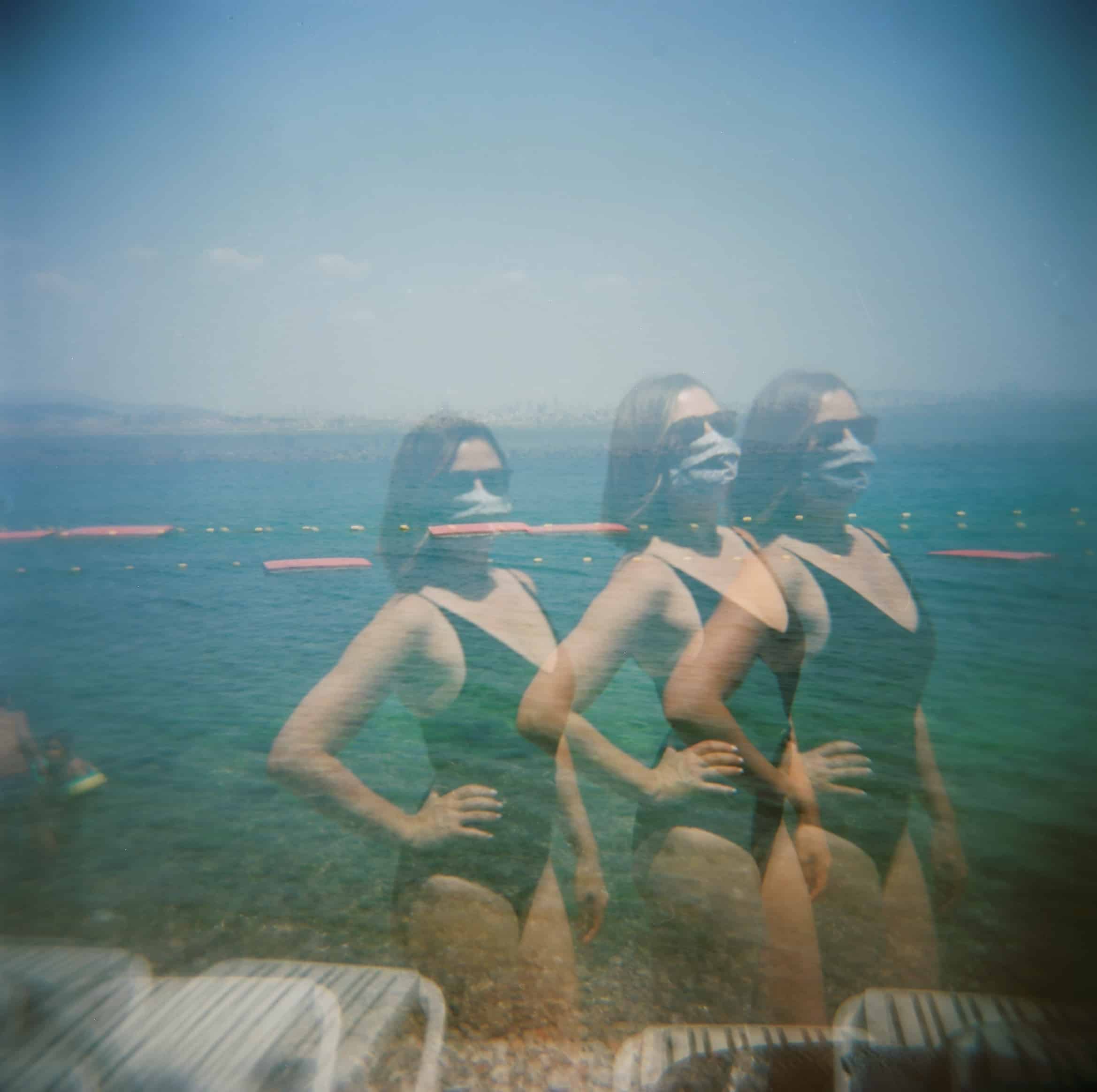
We held hands and approached the blank blackness of the sea, steadying each other as we inched over the crunching pebble beach, into the lapping Mediterranean that we could only hear in front of us. The air shimmered with the vast thrumming of crickets that are the summer soundtrack in the south, and the sky glittered with a glut of stars. It was midnight and there was no moon, no one on the beach. Just me and Gabby and the nighttime waves.
Gabby squeezed my hand and whispered, “Are you ready?”
And together, we stepped into the sea.
——
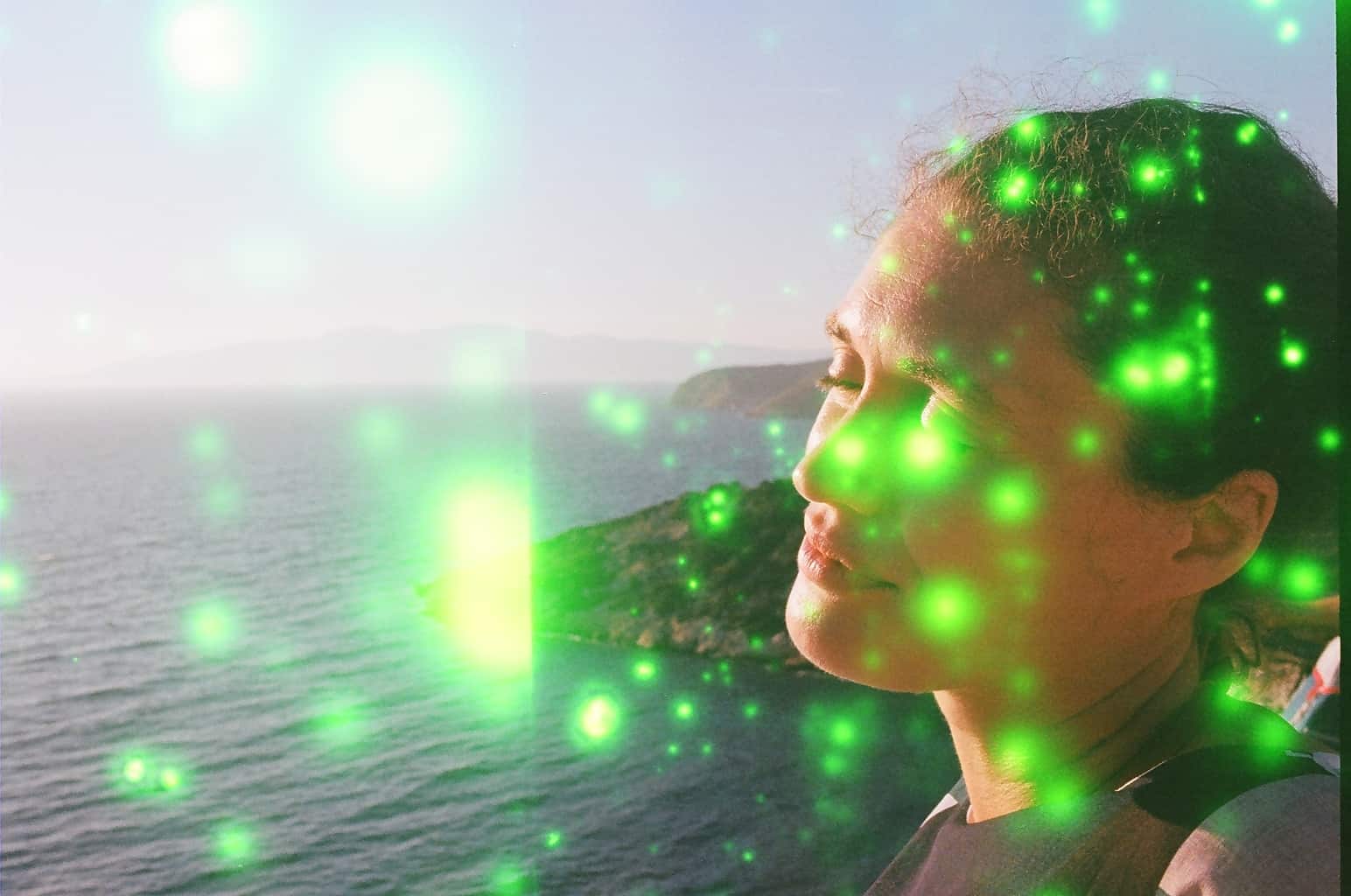
Six months into the pandemic and many days still feel like fumbling in the darkness, trying to reach out and feel a future that is untouchable, unknowable. There is today, and there is today, and then there is another today. And for so many todays, I feel giddy and light and filled with the joy that I usually find quite natural. And then I think of the yesterdays— a hazy blur of days without form. And then I think of the tomorrows— the edge of an abyss, a tumble into something I cannot grasp. And so I am unstuck from time, floating through life in a constant present-tense.
That’s what this summer has been, an exhalation before it’s time to hold our breath again.
Should I tell you about my summer? I’m fumbling in the dark, trying to figure out how to live in the pandemic days, how to keep my mental health steady, how to fill my lungs before a possible lockdown redux. I’ve known since the early days of the pandemic that I would not leave Turkey— even before my American passport limited my travel options. For months, I didn’t leave Istanbul. Until, at last, I did.
The first toe-dip test-the-waters trip came at the end of June, just weeks after Turkey lifted many of the restrictions we’d been living under for months. Finished were the weekend lockdowns, the ban on the seaside, the restrictions on intercity travel. We emerged like baby birds blinking into the light of life, unaccustomed to open cafes and bustling bars and the buyurun buyurun buyurun rhythm of our old Istanbul lives. The pubs opened, the pool didn’t. I became fixated on the sea, determined to leave the city and swim.
So, four of us piled into a rental car and drove to a remote AirBnB in Dalyan, no, not that Dalyan, not the riverside turtle haven under Lycian cliffs. This Dalyan is a tiny village on the Aegean coast, south of Canakkale and across the water from Bozcaada, full of relentless wind and waves. And for four days, the sea was right below us, wild and wailing and waiting for us to swim in it. And we swam, and swam, and soaked it in.
The four of us stayed up late, drinking too many bottles of rosé and crunching salt soaked sunflower seeds and debating emphatically how the moon rose and fell, contemplating love and life and Britney Spears, massaging each other’s hands and leaving behind the specter of the virus, at least for a few days. When we left, we took our empty rosé bottles with us, cramming them clinking into the trunk of the car, embarrassed to let the owner of the Airbnb see just how deeply we’d imbibed.
When I returned to Istanbul, I spent the day crying, overwhelmed by exhaustion and emotion and the return to the sweaty reality of the city— and determined to squeeze as much joy from the summer as possible with my own two hands. As I walked the scorching streets of my neighborhood under the smothering hand of my mask, I dreamed of the south, my favorite coast. I whispered ideas to my travel companions when they sat on my wind-rattled terrace. And a plan emerged. A journey.
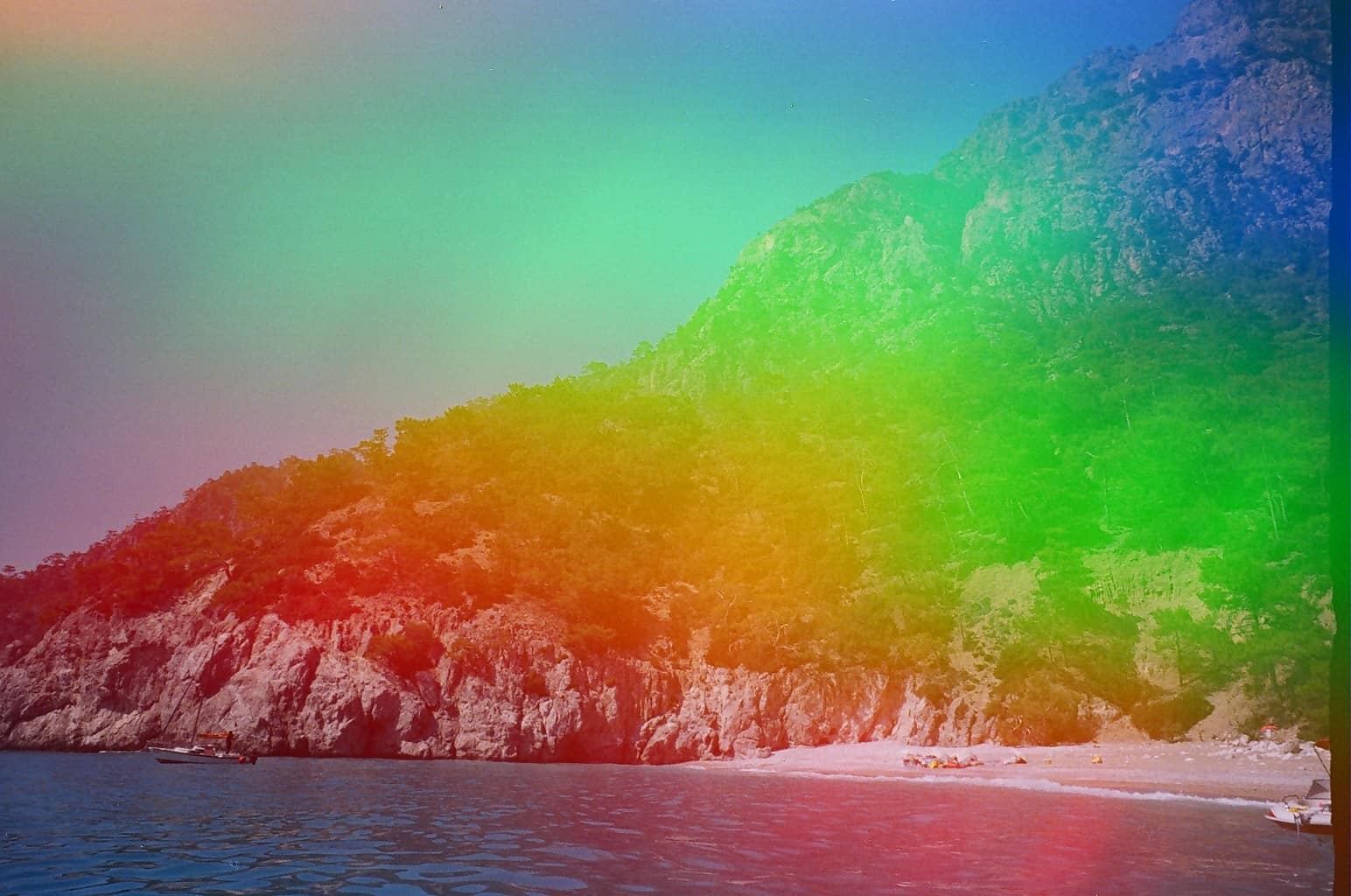
Time doesn’t seem linear in these days of todays and my memories loop and twirl without logic or throughline.
Because I start in the car with Gabby, driving past rippling sunflower fields, snacking on cumin hummus and talking about our heartaches, but overlaid with that is the memory of driving in Datca with Claire many days later, my skin already sunned and salty, listening to Fadoul and Ahmed Fakroun and Al Massrieen as we weave around the peninsula’s single snaking road. The two images flicker back and forth. Or am I in the big van with my friends who rented a villa in Kalkan, sweating under the open windows, careening up heart-stopping hills? Or maybe it’s just me and Peter, swerving away from Google Maps’ tyranny of efficiency and taking the scenic road past Oludeniz and Faralya and Babadag, because time is meaningless and it feels like we have so much of it, or maybe none at all. When we arrive eventually at the Kalkan villa, I leap into the pool.
Gabby and I are walking under pink pepper trees in Cesme, following Ami and Murat, but where are we going? Cesme has wind for 300 days of the year, they tell us, and the wavy water we thrash in at the beach melds with my memory of the sea we swam in near Dalyan. Riotous and unloosed, at night lulling me into a heavy sleep with its rhythmic pulse. We get out of the water when the current drags us all the way to the other side of the beach. The Aegean is so utterly alive. But when we go to Assos for the evening and I stare at the sparkling mass of land that is Lesvos, home of the shameful Moria refugee camp, I know the Aegean has also been so much death. Lesvos is right there. Who wouldn’t be tempted to set out with paper sails and water wings to a future that almost looks close enough to touch?
The Mediterranean is where my heart is, though, that sea full of myths. My first dip in the sea at Ekincik lifts the weight of the first pandemic weeks, when I mourned all the things that would not happen. As I rode my bicycle on Istanbul’s Bagdat Caddesi the days after lockdowns ended, I would hallucinate the smell of the Mediterranean coast, that heady blur of overripe earthiness and goaty farmland and fragrant heat and saltwater and dust. And then I was there, in this perfect bay at Ekincik with smooth rust-colored rocks, actually swimming in the sea of my dreams. And then I was there, in the turquoise water off Kabak, actually swimming in the sea of my summers. I’d given up my annual tradition of making it to Kabak, assuming the pandemic would make the trip impossible. My first dip in the sea at Kabak lifts the weight of the first pandemic weeks, when I mourned all the things that would not happen. The Mediterranean is where my heart is, though, that sea full of memories.
I am there, and I am there again, and I’m not there anymore, but maybe part of me is still there. Maybe I am always there.
“I understand,” says Claire, as we sit under Kabak’s pomegranate trees in the shimmering hiss of the evening, “why you love this place so much.”
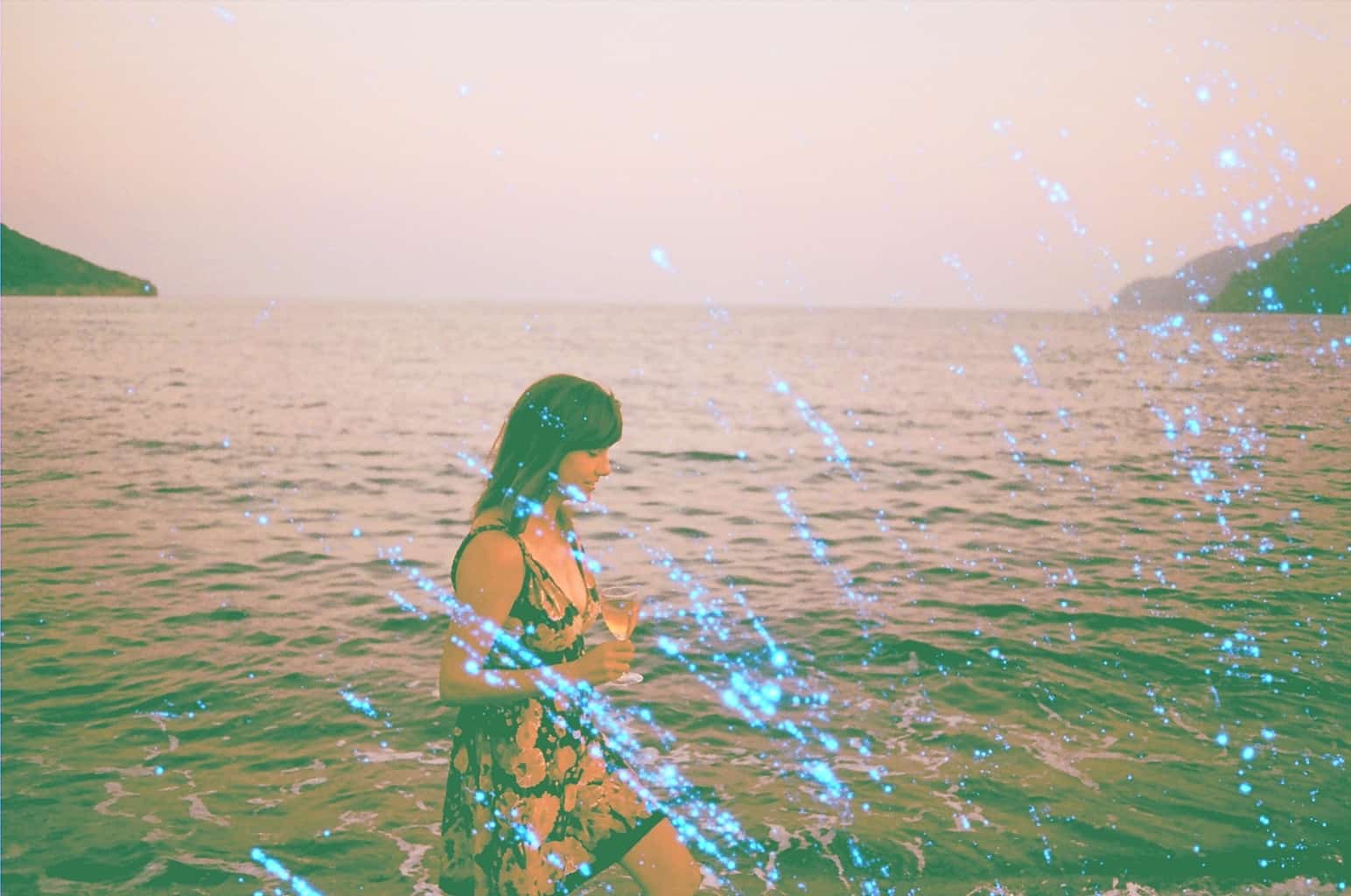
I find throughout the heat and motion, as we all are utterly aware of the poison we might breathe into each other, my mind fixates on a line from a poem called Allergenesis by Kiki Petrosino: “Down in the fens of histamine / My breath gone black as summer.” Here we are on these gorgeous beaches, where the air sings and the heat shimmies, and our biggest fear is the thing I crave the most: delicious, delectable closeness, the feeling of our breath, close conversation, respiration. I have never aspired to distance.
How is it possible to live life at a remove? How can we carry this weight alone? Every today is exuberant and full of dread. We murmur to each other to put the masks on when we leave the car, but we rip them off and sing when we set out on the road again. Are we allowed to be so happy when the world is so heavy and hard? I make my decisions, and I doubt my decisions, and I make my decisions again.
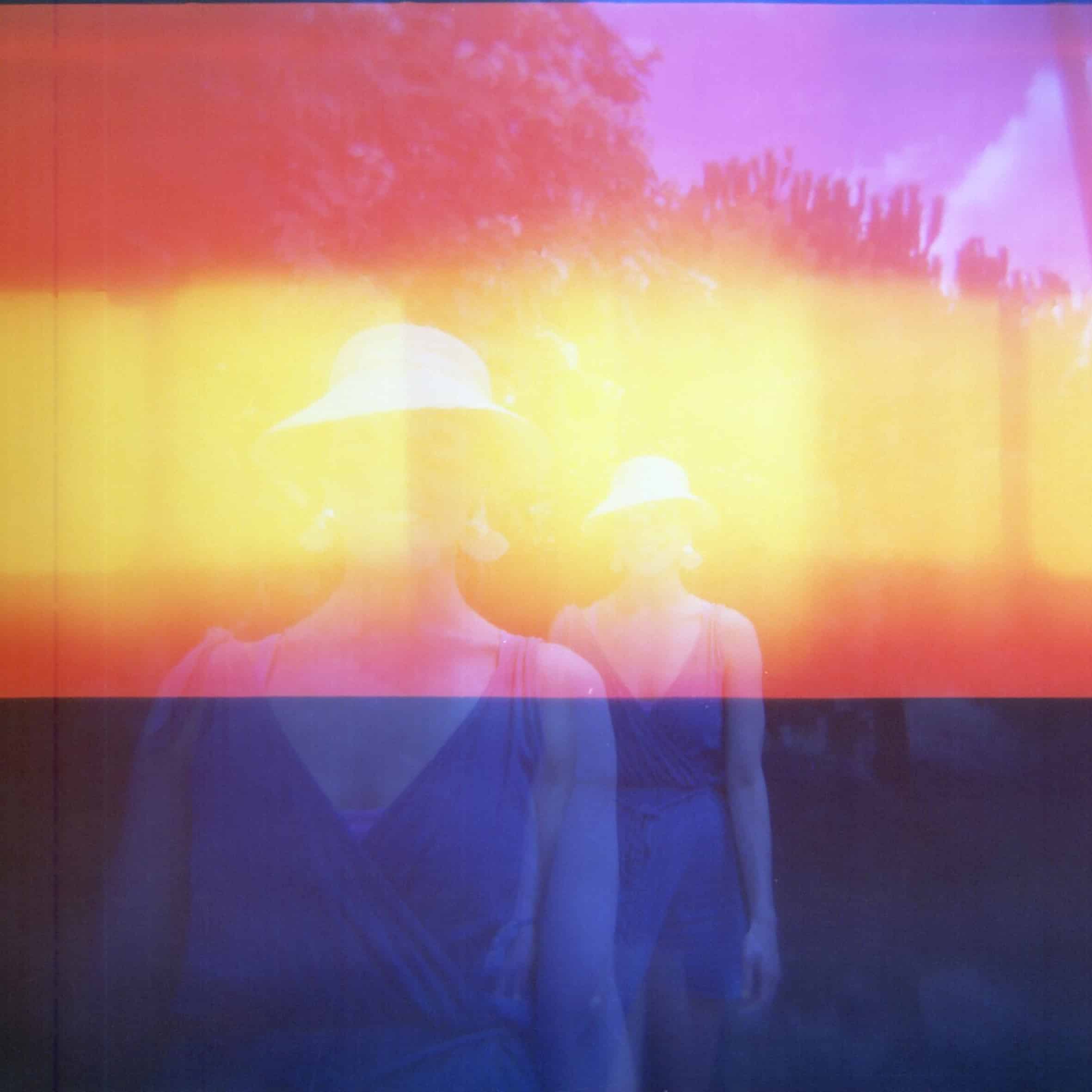
The Hagia Sophia opens as a mosque when we are in Ekincik Bay so I hide my phone under my sun hat, a small rebellion against the relentlessness of all of it. Aubrey insists we drink our bottles of beer in the sea— “FOR SCIENCE!”— and, drunk on sunshine and hops, we all stare at our bobbing empties in some slow-speed version of a race to see which will sink first. For science. Afterwards Gabby and I do yoga in our bikinis and try not to giggle and promise each other that the next day we will wait until after we do yoga to start drinking.
We do, we wait. And then we drink bottles of rosé and I recite The Walrus and The Carpenter with vim and verve while we swim in the nighttime sea, a regurgitation of useless knowledge I memorized as a kid, a drunk delight divorced completely from anything like real life. In this moment, the time had come (the walrus said) to talk of many things, shoes and ships and sealing wax and cabbages and kings. And why the sea is boiling hot. And whether pigs have wings. And after that (or was it before?) I transition to Hamlet, or maybe Macbeth, tragedies for an era of tragedies.
Maybe it isn’t smart to drink so much wine and then swim under a new moon and an ink black sky, but when we fear each other’s breath, risk assessment skews all helter skelter. It is joy entwined with fatalism. It is a twisted giddy coping mechanism.
It is a tale told by an idiot, full of sound and fury, signifying nothing.
Sometimes the relentless motion feels like a failed attempt to outrun the sickness, both the sickness of the pandemic and the sickness at the center of America that ripples out into the world, that specter of Black Death and fascist rot that we can not actually escape. When it is everywhere, there really is nowhere to go.
“There is no corona here,” says our host in Ekincik. “There is space and there is air and you aren’t near anyone and you don’t need to wear the masks.” And we know he is wrong, but we listen to him anyway.
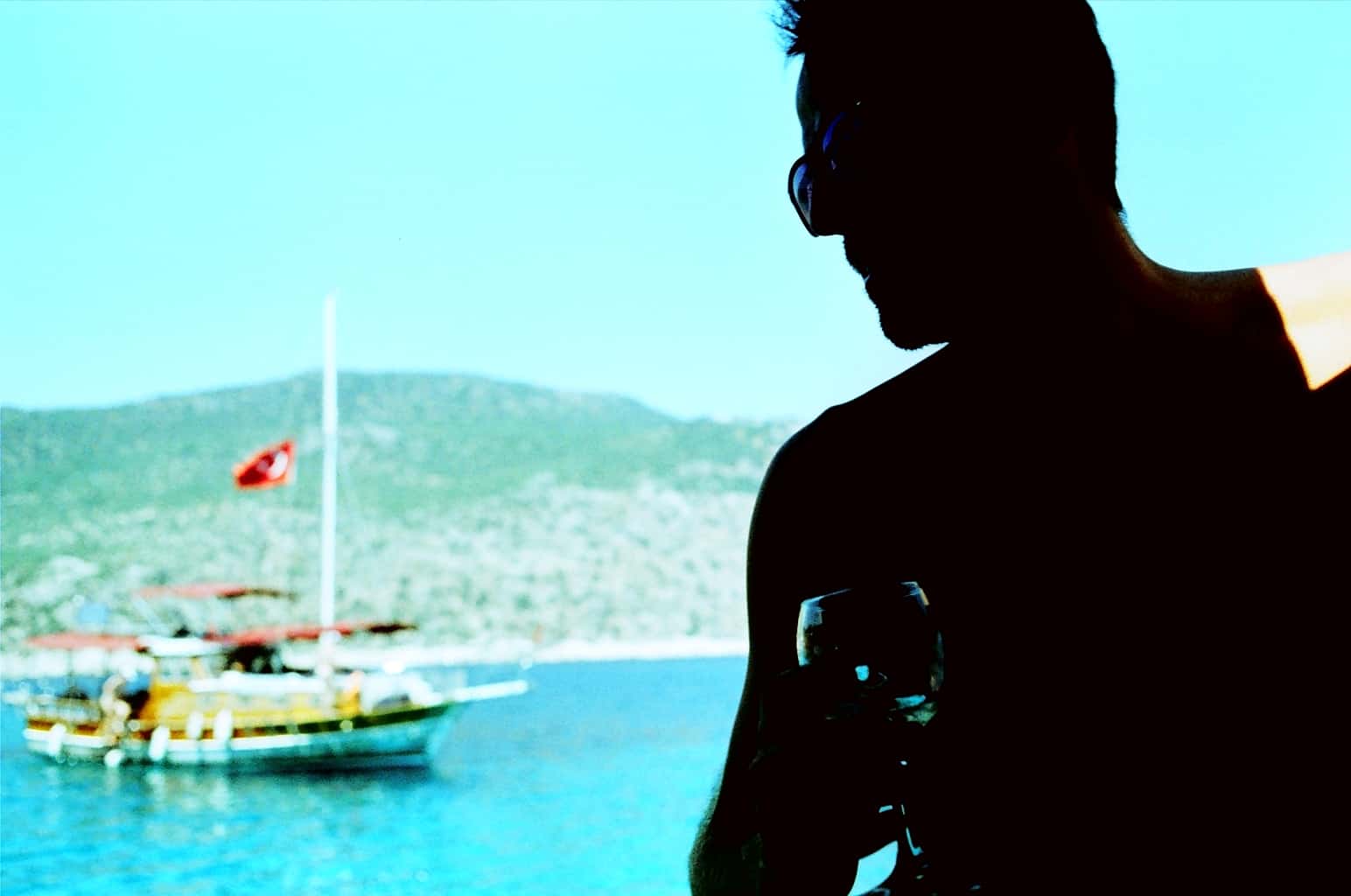
We spend Masha’s birthday on a boat off Kalkan’s limestone shore, strapping on snorkel masks and goggles and holding our breath to contemplate the clear cerulean depths, the skittering schools of fish. It is unreal that any place can be so beautiful. Claire is feeling the pitch of the boat and curls up in the back and at some point Tas and I join her, our conversation lilting with the turquoise waves. And then I am feeling the pitch of the boat, and Claire is asking me if I am okay, but the two of us are in Kabak, cruising through a bay that is literally called Paradise. After weeks on the water, I still feel unbalanced, off-kilter. I feel like that almost every day, actually. The world wobbles even in paradise. It’s so much, so much, too much.
Everywhere I go, when I look up, I see Jupiter, a dart of light in the sky.
In one of the periods when I am back in Istanbul, I get news that my friend Scott has died and a seagull attacks a kitten and Beirut blows up and I think maybe it is all a sign I should have stayed south, floating in the liminal space of sweet untethered existence. Away from this pain, this year of grieving. But that is a lull, an opiate, a mirage of unfeeling that I don’t want to numb my synapses with. My travels in Turkey are an escape from something that is actually inescapable. The moments of brightness in this summer are cracks of lightning, illumination in a terrifying darkness, charged and vibrating and vicious. I can never fully convince myself otherwise. These moments are only bandaids and balms. The pandemic is here. The darkness is here. The inside is out, the decay is visible even as the virus stealthily strangles our regular lives. It’s no wonder I’d rather go swimming.
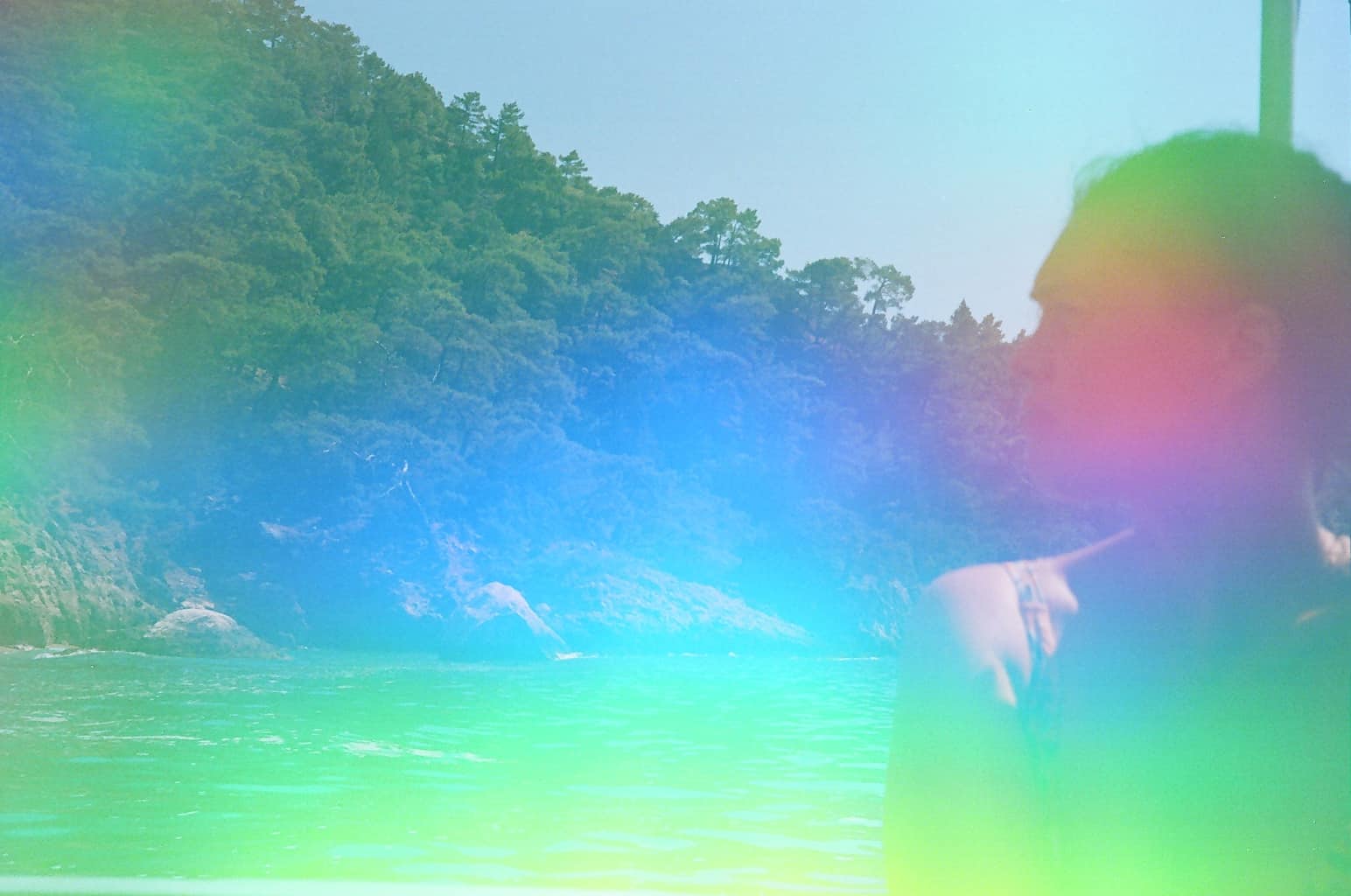
——
Gabby and I floated in the blackness that consumed the sea, the Milky Way crackling through the sky like a bedazzled ballerina, and let the Mediterranean hold us, hover us.
The silence was as thick as the dampening darkness.
Suddenly, in the flick of a motion, Gabby whispered to me.
“Did you see that?”
As she swanned and swooped her hand under the water, she seemed to create a trail of sparkles, shimmering and then flickering out.
“Gabby!” I said. “It’s bioluminescence!”
We gasped, and gaped, and traced the glittering water with our fingertips.
For those moments, the endless todays shrunk down to a corporeal right now, a present tense of very real magic, a bubble of heart-thumping beauty.
And then the moment passed, and we stepped out of the sea and onto the darkening beach, deeply inhaling the night air, filling our lungs with midnight, our breath gone black as summer.
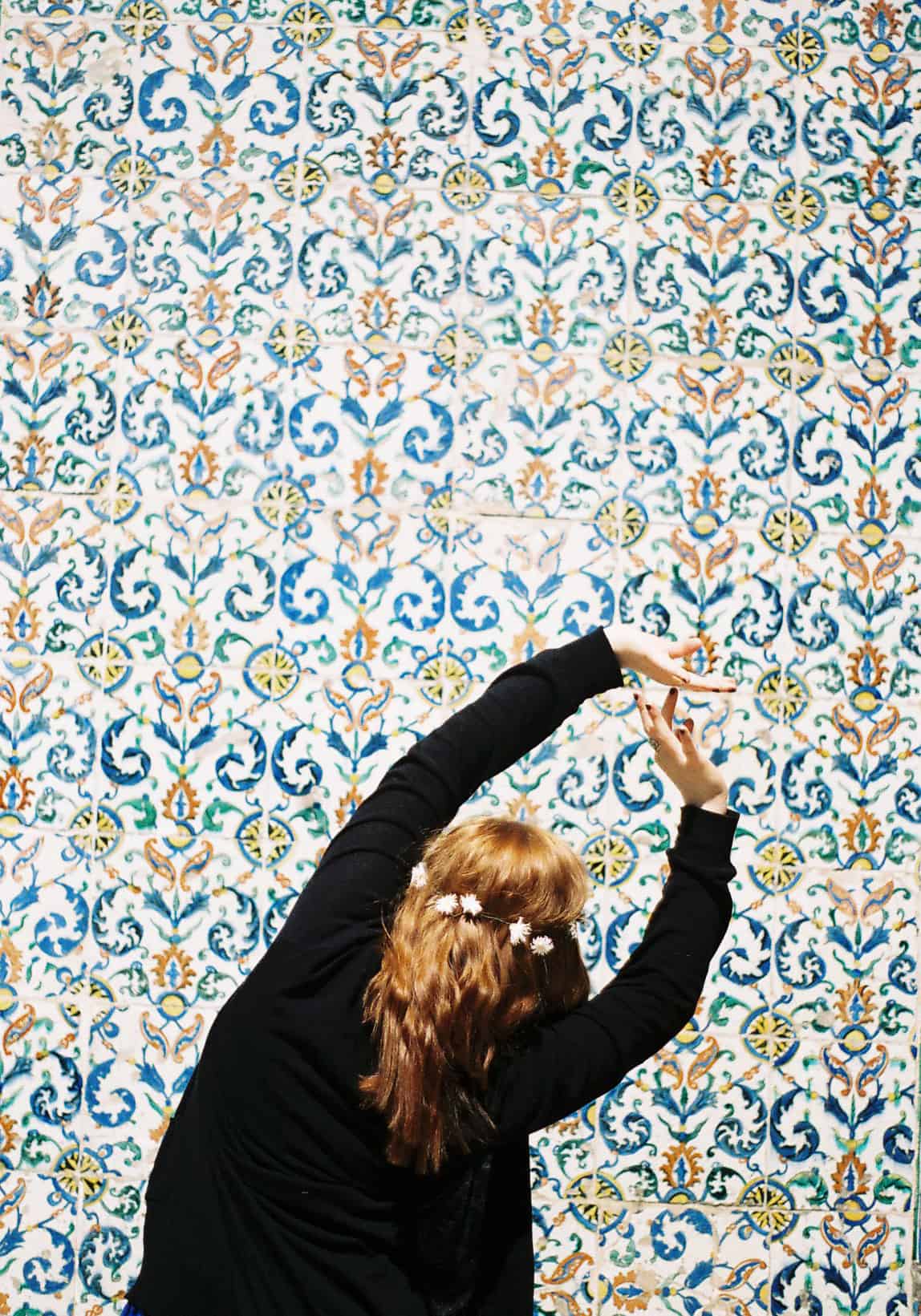
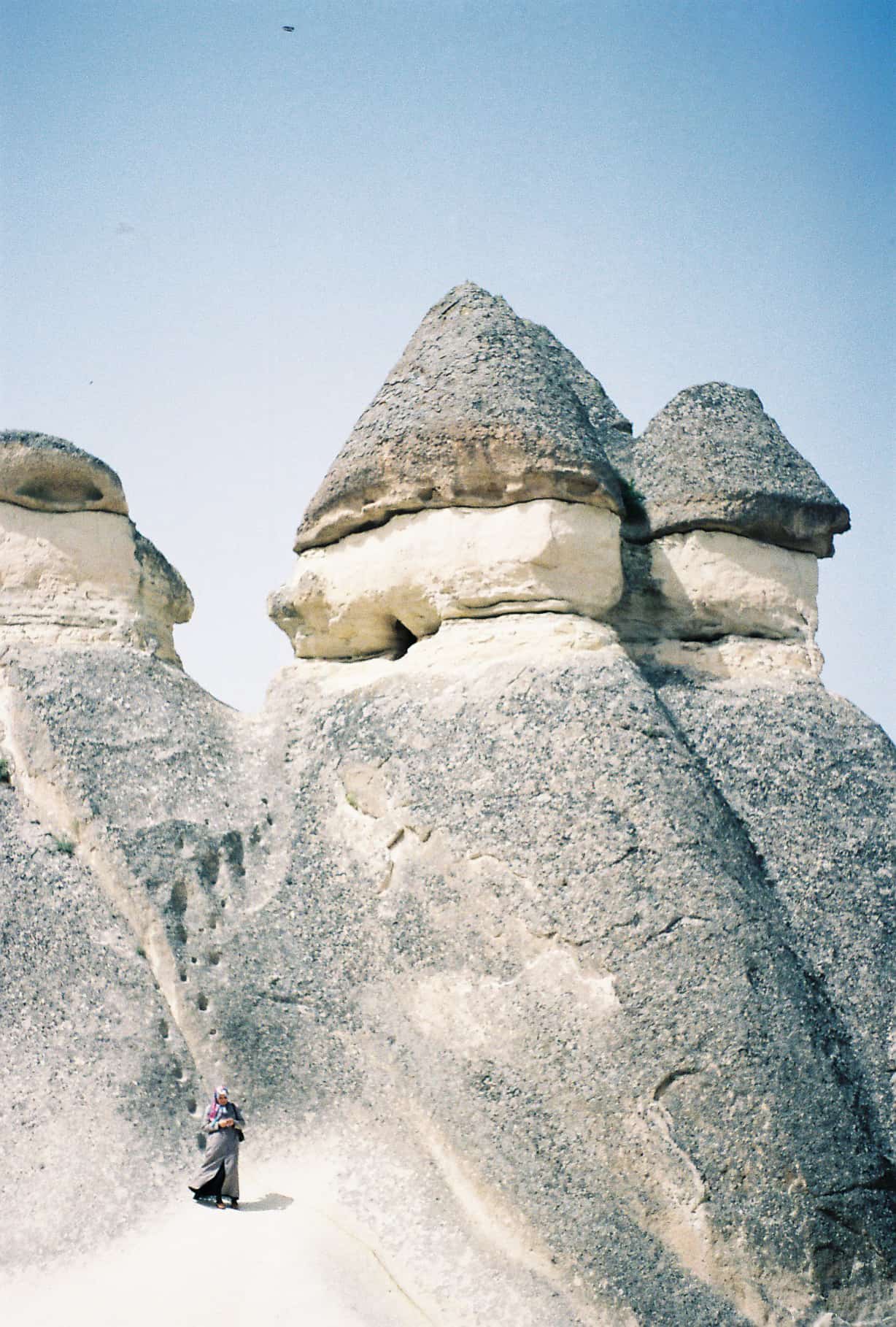
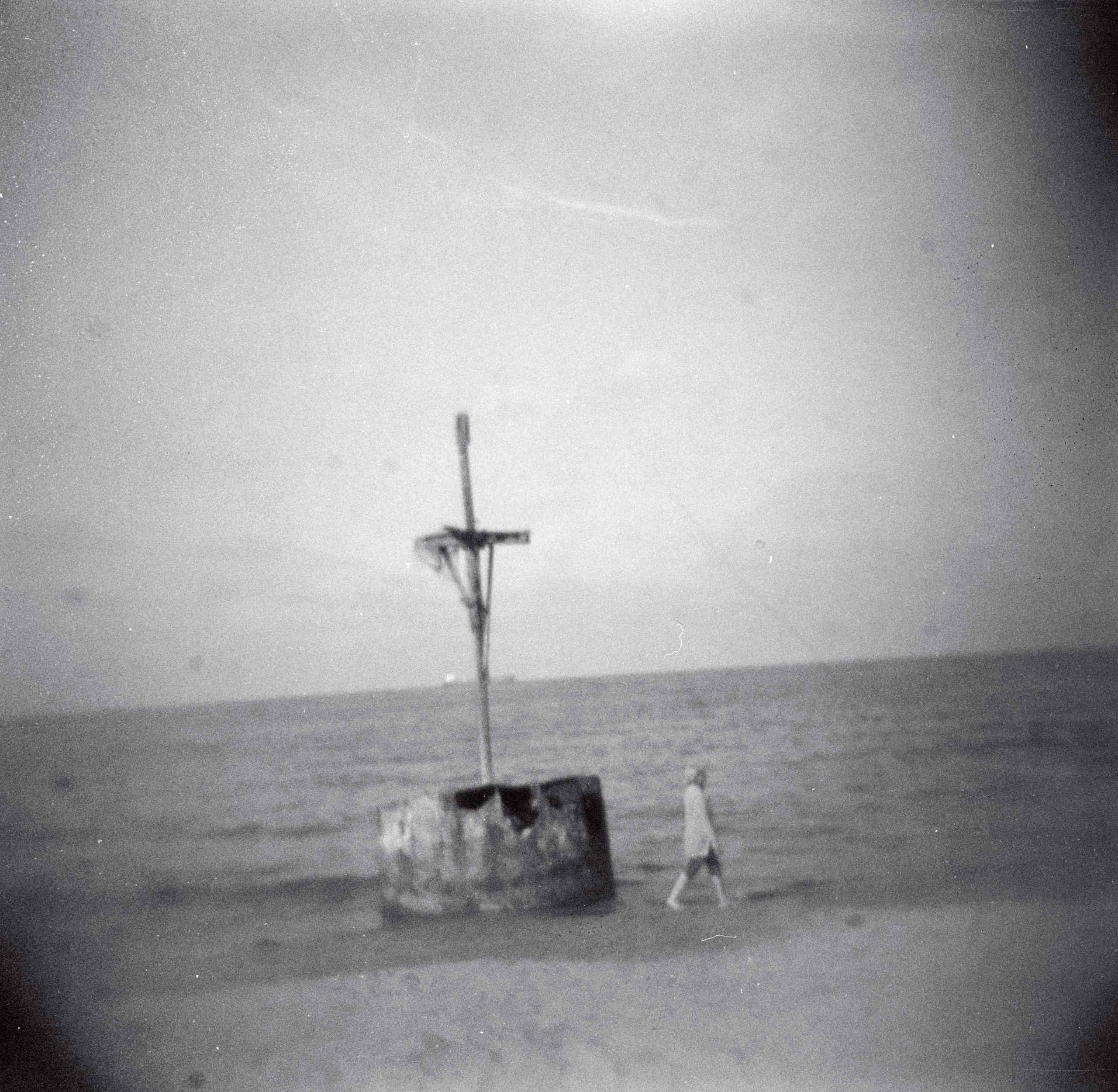
1 Comment
Lauren
September 15, 2020 at 4:48 PMThis is so beautiful. Just so damn beautiful. “There is today, and there is today, and then there is another today.” Such elegant, perfect poetry. Thank you for putting these words into the universe.